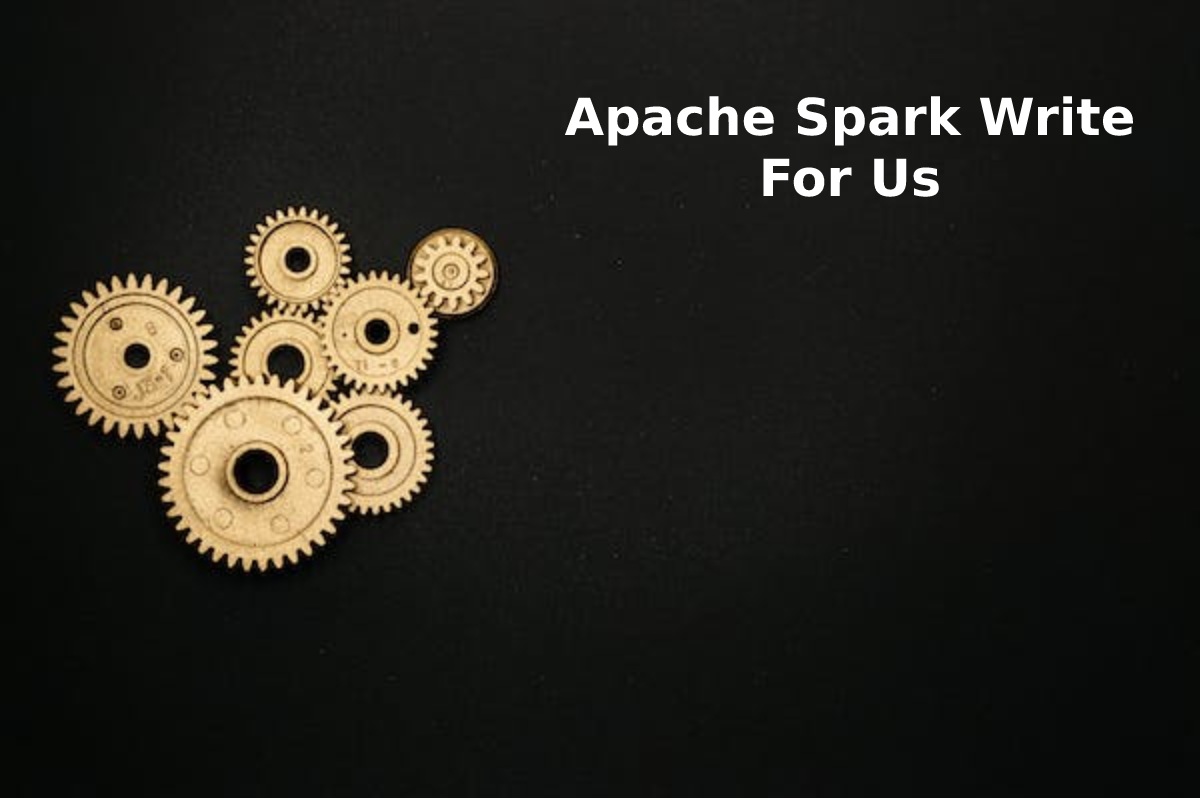Let’s start this tutorial by talking about the first few job interview questions you’ll need to answer at the beginning of your Apache Spark interview.
Something you should definitely pay attention to when studying Apache Spark job interview questions is the type of questions you would come across in such a situation and wonder how you would solve them. As you have probably noticed, many of these questions follow the same formula, they are comparative, definitional, opinion based, they will ask you to provide examples, etc. Why pay attention to these questions?
Typically, the scenarios you will be provided with will be based on real-life situations that could occur within a company. Let’s say, for example, that the company has a big problem to solve a week before the interview. This problem requires a good knowledge of Apache Spark, and an expert is in charge of conducting the interview. Now, the company has solved the problem and during your job interview, said expert decides to ask you how you would have solved it. In this scenario, if you provide an accurate, logical, and intelligent answer that no one within the company would have thought of before, you are most likely on a direct path to getting hired.
So, with that being said, pay attention to even the most minor details. Just because these first few questions are introductory level doesn’t mean they should be skimmed through without overthinking! Take your time and carefully study each of the Apache Spark interview questions. Afterwards, you’ll be glad you did!
Question 1: What is Apache Spark?
Obviously, the first question your potential employers will ask is for you to define Spark. It would be shocking if they didn’t!
This is an excellent example of a “definition” job interview question. In this case, don’t provide a Wikipedia-style answer; try to formulate the definition in your own words. This will show that you are trying to remember and think about what you are saying, not just spitting random words like a robot.
Apache Spark is a framework used primarily for Big Data analytics, Machine Learning, and real-time processing. The framework provides a fully functional interface for programmers and developers; even this interface does a great job of helping with various complex programming and machine-learning tasks.
Question 2: What are the most notable features of Apache Spark?
This is one of those total opinion-based interview questions; you probably won’t need to alphabetize every feature; instead, just pick the one you like and describe it in detail.
To give you some examples of what you might answer, I’ve chosen three: speed, multi-format compatibility, and built-in libraries.
Because there is a minimal number of data processing networks, the Spark engine can achieve incredible speeds, especially compared to Hadoop. On the other hand, speed is critical if you are researching Apache Spark interview questions.
In addition, Spark is compatible with many data sources (because it uses SparkSQL to integrate them) and has a wide variety of default libraries that Big Data developers can use.
Question 3: What is “SCC”?
Although this abbreviation is not commonly used (resulting in somewhat difficult interview questions ), you might come across such a question.
SCC is an acronym for “Spark Cassandra Connector”. It is a tool that Apache Spark uses to access information (Data) located in different Cassandra databases.
Question 4: What is “RDD”?
RDD is an acronym for “Resilient Distribution Datasets”. These are basically operational elements, which, when started, are executed in parallel. RDDs generally support two types of operations, actions and transformations. There are two known types of RDD, parallel collections and Hadoop data sets.
Question 5: What is “immutability”?
As the name implies, when an element is immutable, it cannot be changed or altered once a value has been created and assigned.
It is one of the questions in an Apache Spark job interview in which you can elaborate your answer; you can add that by default, Spark (As a structure) has the same characteristic. However, this does not apply to data collection processes, only their assigned values.
Question 6: What is YARN?
YARN is one of the core features of Apache Spark. It is mainly in charge of resource management but is also used to operate across various Spark sets due to its scalability.
Question 7: What is the most used programming language in Spark?
An excellent representation of basic interview questions, This one should be pretty straightforward. Although many developers like to use Python, Scala is still the most widely used programming language for Apache Spark.
Question 8: How many cluster managers are available in Spark?
By default, there are three cluster managers that you can use in Spark. We have already discussed one of them in previous interview questions, YARN. The other two are known as Apache Mesos and standalone deployments.
Question 9: What are the responsibilities of the Spark engine?
Typically, the Apache Spark engine is responsible for establishing, extending (Distributing), and monitoring the various data sets across different clusters.
Question 10: What are “lazy evaluations”?
You are correct if you think this is one of the funniest interview questions. As the name implies, these evaluations are delayed until the element’s value is needed to be used. Also, lazy evaluations are only executed once; there is no re-evaluation.
Apache Spark Interview Questions – Advanced
At this point in the tutorial, you should probably understand what Spark interview questions are and what types of questions you should expect during an interview. Now that we’ve warmed up, let’s talk about the most famous Apache Spark questions and answers for experienced Big Data developers.
By the way, the advanced versions of these questions will be very similar to their primary counterparts. The only difference is that the advanced versions will require more knowledge and research than the basic ones.
Not to worry, though, if you have studied Apache Spark extensively, these interview questions will be a piece of cake for you. Whether you’re new to Apache Spark or an expert, these interview questions for professional developers will help you extend and deepen your knowledge as you venture into the fantastic world of Spark.
Question 1: What are “partitions”?
A partition is a small part of a larger piece of data. Divisions are based on logic; they are used in Spark to manage data to achieve the minimum use of resources on a network.
It is one of the questions in an Apache Spark job interview in which you can elaborate your answer; it would be appropriate to add that the partitioning process is used to derive small pieces of data into larger pieces, thus optimizing the execution of the network and at the same time reach the maximum possible speed.
Question 2: What is Apache Spark Streaming used for?
You should come to the interview prepared to receive some questions related to Spark Streaming, as it is a prevalent feature of Apache Spark.
Basically, Spark Streaming is responsible for scalable and uninterrupted data transmission processes. It is a core extension of the Spark program and is commonly used by Big Data developers and programmers.
Question 3: Is it normal to run all your processes on a localized node?
No, it is not. In fact, this is one of the most common mistakes a Spark developer makes, especially when just starting out. You should always try to distribute your data flow; this will allow you to speed up and improve the process.
Question 4: What is “SparkCore” used for?
SparkCore is the main engine responsible for all processes that occur within Spark. With this in mind, you probably wouldn’t be surprised to learn that it has a ton of tasks, including monitoring, memory and storage management, task scheduling, etc.
Question 5: Does the Filesystem API have use in Apache Spark?
This API allows Spark to read and create data across different storage areas (Devices).
Resume.
In this tutorial, we’ve covered everything from Spark basics to professional developer interview questions. Now, at least, you have a detailed understanding of what to expect in a job interview.
Try not to stress and work too hard before an interview. I guess you haven’t applied for a job as an Apache Spark developer without an idea of what Spark is. Relax, you already know too much! Focus all your attention on these Spark interview questions; They will help you review the most critical information and prepare for your following interview.

Likewise, You can submit your articles at contact@businessinsiderblogs.com
How to Submit Your Apache Spark Articles Apache Spark Write For Us?
That is to say, To submit your article at www.businessinsiderblogs.com, mail us at contact@businessinsiderblogs.com.
Why Write for Business Insider Blogs– Apache Spark Write For Us

Apache Spark Write For Us
That is to say, here at Business Insider Blogs, we publish well-researched, informative, and unique articles. In addition, we also cover reports related to the following:
open-source
interface
data parallelism
fault tolerance
University of California
Berkeley’s AMPLab
codebase
Apache Software
Foundation
computer software
Open-source-software movement
license
copyright
distribute the software
source code
Guidelines of the Article – Apache Spark Write For Us

Search Terms Related to Apache Spark Write For Us
apache spark interview questions
spark advanced interview questions
spark core interview questions
Related Pages
Artificial Intelligence Write For Us
[Blockchain Write For Us]
[Business Blog Write For Us]
[Business Finance Write For Us]
[Business Growth Write For Us]
[Business Sites Write For Us]
[Business Tips Write For Us]
Chat Rooms Write For Us
[Content Marketing Write For Us]
[Cryptocurrency Write For Us]
Technology Write For Us
Link Building Write For Us
Web Designing Write For Us
Digital Marketing Write For Us
Social Media Marketing Write For Us
Finance Write For Us
Website Designing Write For Us
Seo Write For Us
Jewelry Write For Us
Video Marketing Write For Us
Tether Write For Us
Affinity Marketing Write For Us
Air Conditioner Write For Us
Apache Spark Write For Us
Artificial Intelligence Write For Us
Blockchain Write For Us
Business Blog Write For Us
Business Finance Write For Us

